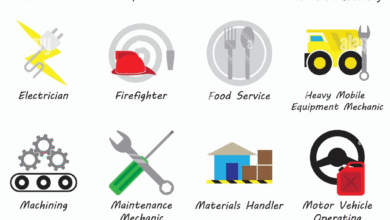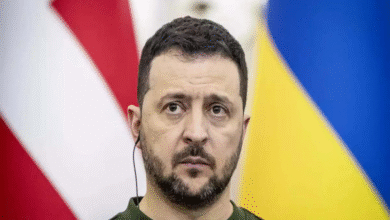Pope Leo XIV on Workers’ Rights and Social Justice

Pope Leo XIV, a name chosen to honor the legacy of Pope Leo XIII, stands as a champion for workers’ rights and social justice in our contemporary era. In a significant meeting with cardinals, he highlighted the urgent need to confront the escalating challenges that artificial intelligence poses to labor and human dignity. “In our time, the Church provides everyone with the wealth of its social teaching in response to another industrial revolution,” he stated, underpinning the importance of adapting to modern societal shifts. Drawing inspiration from Pope Francis, Leo XIV is committed to continual advocacy for social justice, reflecting his predecessor’s dedication to simplicity and service during his impactful tenure. As we navigate these transformative times, Pope Leo XIV emerges as a pivotal figure in advocating for the rights of workers amidst the rapid evolution of technology.
Pope Leo XIV, the recent papal leader, draws from a profound legacy that includes the influential teachings of Pope Leo XIII, particularly regarding the welfare of workers and the quest for social justice. His recognition of the challenges presented by advancements like artificial intelligence showcases a forward-thinking approach to the Church’s social doctrine. By echoing sentiments similar to those of Pope Francis, he emphasizes the essential nature of addressing these pressing issues as society undergoes significant transitions. This new leader aims to bridge historical wisdom with contemporary challenges, ensuring that the Church remains relevant in advocating for human dignity and labor rights. In this light, Pope Leo XIV’s papacy could mark a significant chapter in the ongoing dialogue about justice and technology.
Honoring Pope Leo XIII: A Legacy of Workers’ Rights
Pope Leo XIV intentionally adopted his papal name in honor of Pope Leo XIII, who is celebrated for championing workers’ rights and advocating for social justice during his papacy. Pope Leo XIII’s encyclical, Rerum Novarum, laid the groundwork for the Catholic Church’s social teaching by addressing the plight of the working class amid the first industrial revolution. This foundational document highlighted the Church’s commitment to promoting fair labor practices and human dignity, ideals that continue to resonate in today’s economic landscape. By reflecting on the legacy of Pope Leo XIII, Pope Leo XIV aims to reinvigorate the Church’s mission in defending the rights of workers, especially in light of the challenges presented by modern technological advancements.
In a world increasingly shaped by the dynamics of artificial intelligence and automation, Pope Leo XIV recognizes that the principles established by Pope Leo XIII must evolve to confront contemporary challenges. The rapid pace of technological change raises questions about job security, labor rights, and ethical treatment of workers. As AI changes the workforce, the Church’s role in advocating for just labor practices becomes ever more critical. Pope Leo XIV’s engagement with this legacy serves not only as an acknowledgment of past achievements but also as a call to action for current and future generations to uphold the dignity of work.
The importance of celebrating Pope Leo XIII’s contributions as an advocate for social justice cannot be overstated. His teachings remain a guiding light for Bishops and laypeople alike, reminding them that the rights of workers are intrinsically linked to human dignity and moral responsibility. In his encyclicals, Pope Leo XIII articulated a vision that sought to balance the needs of employers and employees, emphasizing mutual respect and cooperation. Generations of Catholics have leaned on these teachings as they strive to navigate the complexities of modern labor relations. Through the lens of this legacy, Pope Leo XIV aims to foster dialogue on contemporary issues, ensuring that workers’ rights remain a priority within a rapidly changing socio-economic landscape.
Addressing Modern Challenges to Workers’ Rights
As Pope Leo XIV acknowledges the advancements in artificial intelligence, he emphasizes that the Church must proactively engage with emerging issues that threaten workers’ rights. The advent of new technologies poses unique challenges, including job displacement and a potential erosion of labor rights as organizations seek to maximize efficiencies through automation. In his discussions with the cardinals, Pope Leo XIV stated, “In our time, the Church provides everyone with the wealth of its social teaching in response to another industrial revolution and developments in the field of artificial intelligence that present new challenges for the defense of human dignity, justice, and labor.” This sentiment underscores the Church’s unwavering commitment to protecting vulnerable workers in an evolving economic landscape.
Furthermore, Pope Leo XIV’s leadership comes at a time when many workers feel alienated by the rise of technology. The displacement caused by AI and automation can lead to instability and inequality, which the Church aims to address through its social teachings. By reaffirming the significance of community, solidarity, and social responsibility, Pope Leo XIV seeks to remind society and policymakers of their roles in ensuring just workplaces. The Church’s mission is not only to adapt to these changes but also to guide them, implementing a framework that promotes fair labor standards while protecting the dignity of every worker.
Alongside Pope Leo XIV’s emphasis on addressing technological advancements, he also draws inspiration from Pope Francis’s approach to social justice. By following his predecessor’s example, Pope Leo XIV aims to highlight the importance of service and simplicity in addressing these modern challenges. Pope Francis has consistently championed the cause of marginalized communities, advocating for their rights and dignity in a society increasingly driven by profit margins rather than human needs. This commitment to social justice is a fundamental aspect of the Church’s mission, encouraging all believers to engage actively in protecting the rights of workers and advocating for comprehensive reforms within labor systems.
Pope Leo XIV recognizes that the ongoing dialogue about workers’ rights is crucial in a society marked by divisions and disparities. By committing to social justice, as exemplified by Pope Francis, the Church can foster a more equitable and compassionate approach to the challenges experienced by today’s workforce. The synergy between past teachings and present advocacy creates a path forward—one that emphasizes justice and solidarity in the face of complex social issues, ensuring that the Church remains a powerful voice for the voiceless in the realm of labor rights.
The Continuing Relevance of Social Justice
Social justice remains a foundational principle that guides the Church’s teachings and actions. Both Pope Leo XIII and Pope Francis have made significant contributions to the discourse surrounding social justice, which Pope Leo XIV seeks to build upon. Social justice, rooted in the inherent dignity of every human being, calls on societies to address inequities and advocate for the rights of the most vulnerable. In an age characterized by economic globalization and rapid technological change, the Church’s message is more relevant than ever. Pope Leo XIV’s role in upholding this principle emphasizes the necessity for a moral compass amid the complexities of modern life.
With increasing conversations around the impact of artificial intelligence on labor, the Church is positioned to address these ethical dilemmas squarely. Through social justice initiatives, Pope Leo XIV highlights the need for ethical standards in technology and business practices that prioritize human dignity over profit. By aligning the Church’s mission with pressing social issues, he invites global communities to reflect on their responsibilities toward those who may be affected adversely by new advancements. This ongoing commitment to social justice ensures that the Church remains not only a spiritual guide but also a proactive participant in shaping just and equitable economic policies.
Alongside addressing the immediate concerns of workers’ rights and equity, the concept of social justice extends beyond labor to encompass broader societal well-being. Pope Leo XIV reinforces the Church’s advocacy for comprehensive social policies that promote inclusion, community welfare, and sustainability. By prioritizing these values, the Church challenges individuals and institutions to deepen their commitment to creating a fair society. The teachings provided by Pope Leo XIII and Pope Francis resonate with today’s ethical challenges, reminding the faithful that pursuing social justice is both a spiritual and moral imperative.
Pope Leo XIV, aware of the historical context and future implications of social justice, envisions a Church actively engaged in fostering dialogue and grassroots initiatives. By encouraging concrete actions that protect workers and their rights while advocating for systemic change, he aims to inspire a wave of solidarity that mirrors the teachings of his predecessors. In advocating for social justice, the Church transforms its teachings into tangible actions that uplift communities and safeguard the rights of all, affirming the essential role of faith in addressing the world’s most pressing issues.
Pope Leo XIV’s Vision for a Just Economy
Pope Leo XIV is determined to forge a robust vision for a just economy that embodies the values of equality, dignity, and solidarity for workers. Drawing on the rich tradition of the Catholic social teaching established by his predecessors, particularly Pope Leo XIII, he envisions an economic system responsive to the needs of all stakeholders—not just the powerful few. This vision acknowledges the complexities posed by artificial intelligence and automation, emphasizing the importance of incorporating ethical considerations into technological advancements while advocating for equitable labor practices.
The Pope’s emphasis on a just economy resonates deeply with the current socio-economic challenges faced by workers globally, especially in industries experiencing rapid shifts due to automation. By prioritizing the dignity of work, Pope Leo XIV encourages businesses and governments to integrate moral values into their economic policies, ensuring that all workers benefit from the fruits of innovation and progress. In doing so, he underscores the necessity of creating systems that uplift, empower, and respect every individual in their pursuit of a just livelihood.
Furthermore, Pope Leo XIV recognizes that a profound transformation towards a just economy must be rooted in collaboration and dialogue. He calls upon various sectors—including industry leaders, policymakers, and civil society—to come together in a joint effort to address workers’ rights amidst emerging technologies. By fostering inclusive conversations, the Pope aims to build consensus around economic practices that prioritize people over profits and promote fairness in labor conditions. The outreach to business leaders highlights a pivotal shift in ensuring that the advancements in artificial intelligence lead to shared prosperity rather than exacerbating inequalities.
Additionally, by addressing potential disparities brought about by technological advancements, Pope Leo XIV embodies a commitment to social justice that builds on the teachings of Pope Francis. His call for a just economy encompasses more than mere financial transactions; it emphasizes fostering community relationships, ethical treatment, and responsibility for the common good. This vision for an equitable economic future invites all to reflect on their roles in shaping policies that prioritize respect for individuals and equitable rights, thus reinforcing the Church’s commitment to advocating for justice in every aspect of life.
The Role of the Church in Protecting Workers
As Pope Leo XIV assumes the papacy, he recognizes the pivotal role the Church plays in safeguarding workers’ rights within the contemporary landscape. The insights shared by Pope Leo XIII laid the groundwork for the Church’s activism in labor rights, positioning it as a moral authority in advocating for social justice. Today, as the challenges of automation and artificial intelligence multiply, the Church’s responsibility in defending human dignity and promoting fair labor practices is more critical than ever. Pope Leo XIV emphasizes that the Church must actively engage with workers and advocate for policies that defend their rights against potential exploitation and disregard for their welfare.
The Church’s engagement with modern labor issues also entails educating the faithful on the importance of worker rights and social responsibility. Pope Leo XIV’s leadership aims to revive the collective consciousness around labor issues, encouraging a broader understanding of social teachings that promote dignity in work. This proactive approach not only seeks to inspire faith-driven activism but also encourages collaboration between church communities and workers to make an impact in advocating for legislative reforms and workplace protections.
Moreover, Pope Leo XIV aims to connect the Church’s message of worker rights to the contemporary challenges posed by technological advancements. Acknowledging the complexities that arise from automation, the Pope encourages discussions around the ethical implications of artificial intelligence and its impact on job security. By harnessing Catholic social teaching, the Church can serve as a powerful voice advocating for responsible technology use that respects workers’ rights. Through practical engagement, the Church aims to provide guidance on navigating the intricacies of labor relationships within rapidly changing economic structures.
In this light, the Church under Pope Leo XIV not only seeks to protect individual workers but also to champion systemic changes that foster just labor practices. His commitment to protecting workers’ rights, combined with the Church’s rich history of advocacy, positions it as an integral player in shaping fair narratives surrounding work in the age of technology. Pope Leo XIV’s call to action resonates deeply, reinforcing the notion that caring for workers is an act of faith, further solidifying the Church’s role in the ongoing quest for social justice.
Frequently Asked Questions
How does Pope Leo XIV honor Pope Leo XIII’s legacy on workers’ rights?
Pope Leo XIV honors Pope Leo XIII’s legacy by emphasizing the importance of workers’ rights in his teachings. He acknowledges Leo XIII’s pivotal role in advocating for social issues and workers’ rights during the first industrial revolution and aims to continue addressing the challenges modern workers face today.
What social justice principles does Pope Leo XIV plan to uphold?
Pope Leo XIV intends to uphold the social justice principles championed by Pope Francis. He plans to focus on the Church’s commitment to humanity, addressing contemporary issues that arise from technological advancements, especially in protecting workers’ rights.
How is artificial intelligence impacting workers’ rights according to Pope Leo XIV?
Pope Leo XIV highlights that artificial intelligence poses new challenges for workers’ rights and human dignity. He emphasizes the necessity of the Church’s social teachings to guide responses to these challenges to ensure just labor practices in the face of technological advancements.
What message did Pope Leo XIV convey to cardinals regarding social issues?
In his meeting with cardinals, Pope Leo XIV stressed the significance of addressing emerging social issues, particularly the impact of artificial intelligence on workers’ rights and humanity. He noted the Church’s role in guiding moral responses to these challenges.
Who was Pope Leo XIV’s predecessor, and how did he influence his approach to social justice?
Pope Leo XIV’s predecessor was Pope Francis, whose commitment to social justice greatly influenced Leo XIV’s approach. He admires Francis’ focus on service, simplicity, and the promotion of social teachings relevant to contemporary societal challenges.
What are the new challenges to workers’ rights mentioned by Pope Leo XIV?
Pope Leo XIV identifies that the rise of artificial intelligence presents new challenges to workers’ rights, necessitating updated social teachings to protect human dignity and justice in labor as society evolves with technological advancements.
How did Pope Leo XIII contribute to the dialogue on workers’ rights?
Pope Leo XIII significantly contributed to the dialogue on workers’ rights through his encyclicals during the first industrial revolution, advocating for fair labor practices and the dignity of work—principles that Pope Leo XIV seeks to build upon today.
What is the significance of Pope Leo XIV’s election in relation to social teachings?
Pope Leo XIV’s election signifies a renewed focus on social teachings and workers’ rights within the Catholic Church, drawing inspiration from Pope Leo XIII’s advocacy and responding to contemporary issues highlighted by Pope Francis.
| Key Point | Details |
|---|---|
| Pope Leo XIV’s Name Choice | Selected to honor Pope Leo XIII and his commitment to social issues. |
| Focus on Workers’ Rights | Emphasized the need to address new challenges for workers due to AI advancements. |
| Social Teaching of the Church | Stressed the Church’s role in providing guidance on labor rights during changing industrial conditions. |
| Influence of Pope Francis | Aiming to continue Pope Francis’ dedication to social justice and service to humanity. |
| Historical Context | Pope Leo XIII was a crucial figure in advocating for workers during the first industrial revolution. |
| Cardinal Robert Prevost’s Election | Elected as the first American pope on May 8, 2025. |
Summary
Pope Leo XIV is characterized by his commitment to commemorating the legacy of Pope Leo XIII and embracing contemporary challenges faced by workers, particularly those that arise from advancements in artificial intelligence. His leadership is distinguished by a dedication to the principles of social justice, a continuation of the impactful teachings of his predecessor, Pope Francis. As he guides the Church through this new industrial revolution, Pope Leo XIV aims to uphold the dignity, rights, and justice for workers in an evolving landscape.




